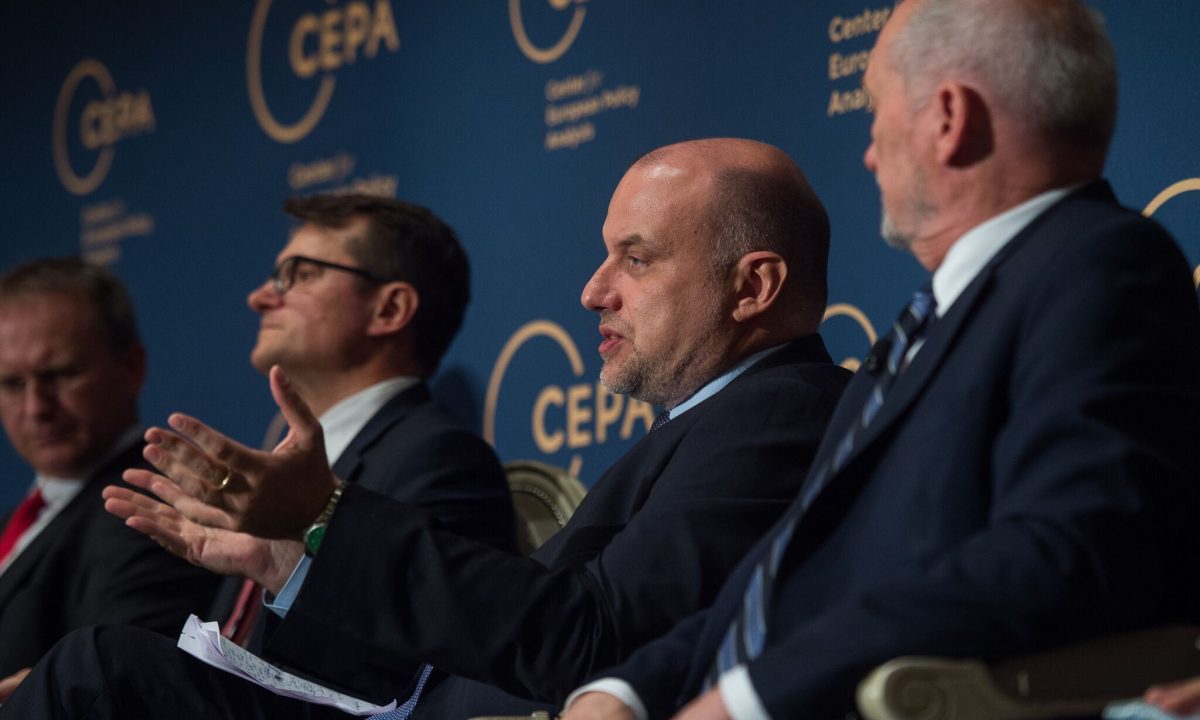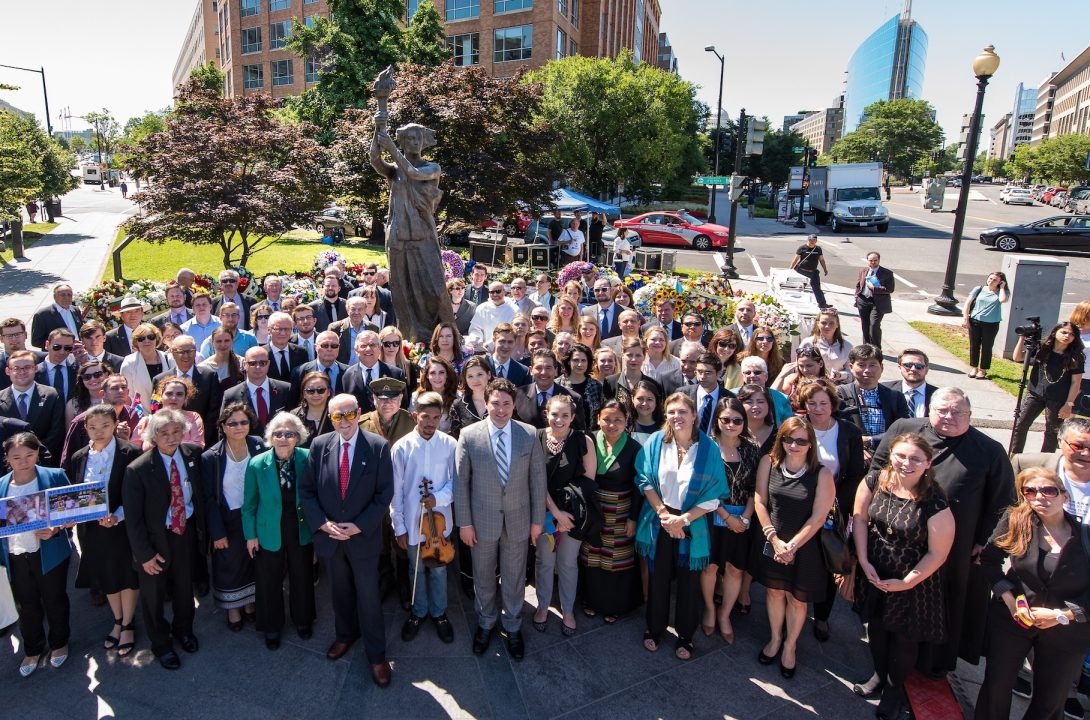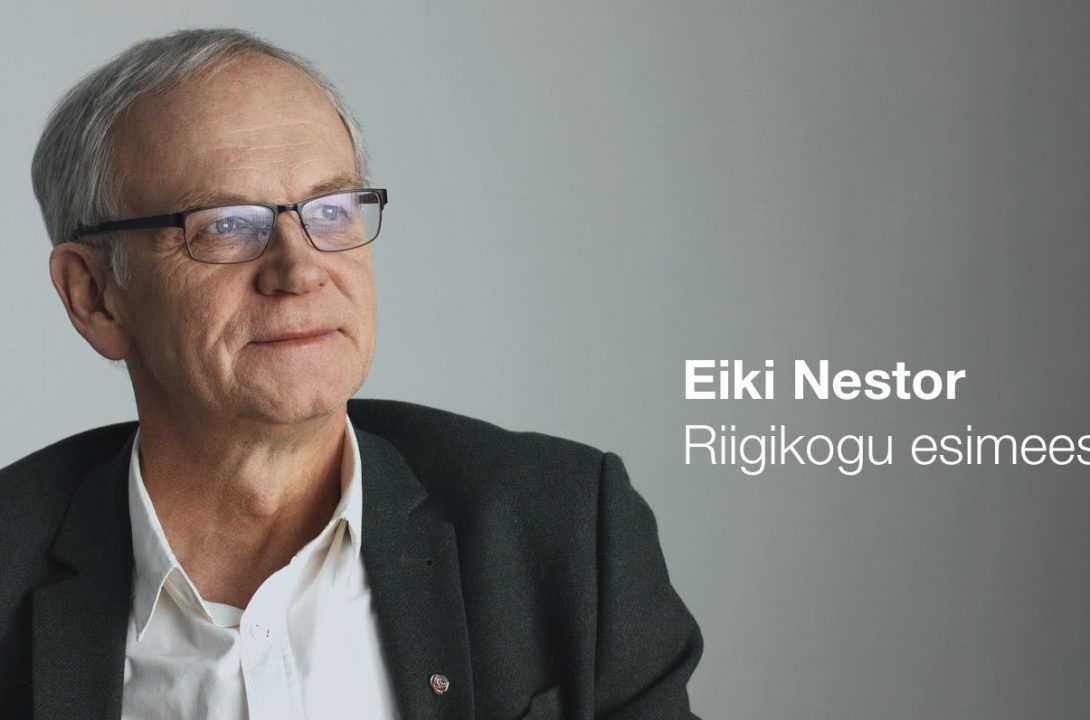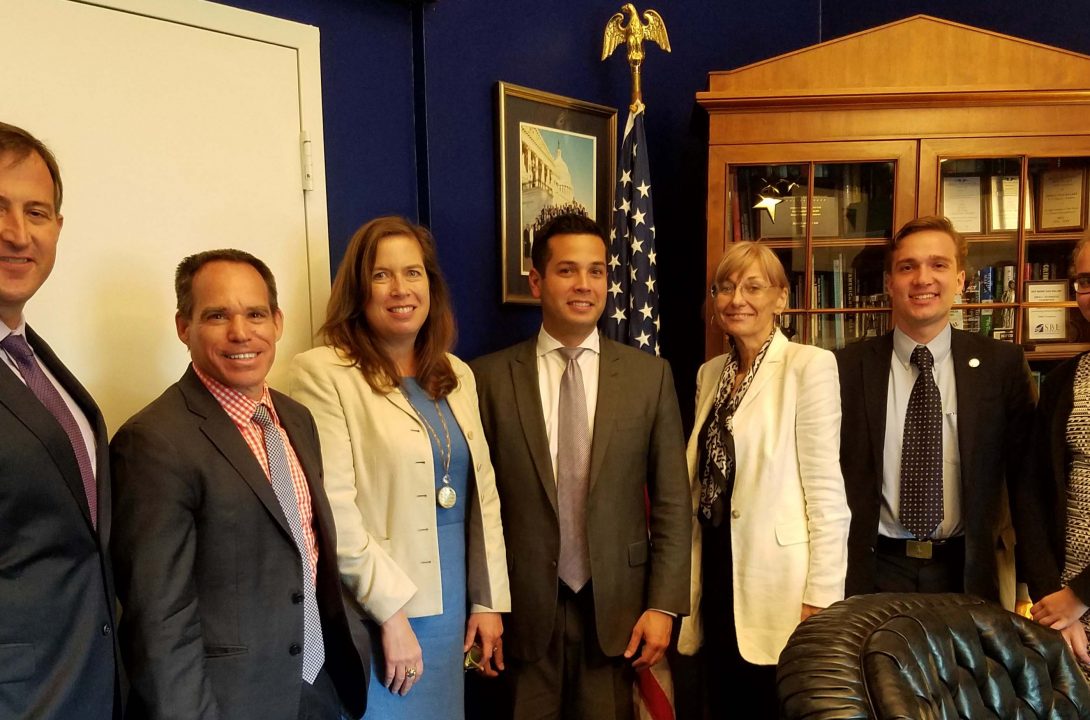Two Perspectives on Western Security and Russia
October 28, 2017
EANC 2018 ELECTIONS / ERKÜ VALIMISED
June 15, 2018Two major think tank events in Washington recently featured Estonian speakers on topics including reforming NATO for the 21st century, security challenges of the information age, defending NATO’s frontiers, and state sponsors of disinformation. The Center for European Policy Analysis (CEPA) held its annual two-day conference on transatlantic security September 21-22, where Estonian Defense Minister Jüri Luik, Defense League commander Major General Meelis Kiili, and strategic communications expert Urve Eslas were among the top-level lineup of presenters and panelists. The following week, the Atlantic Council held the first transatlantic forum on strategic communications to examine the influence of agents of destabilizing disinformation. Former Estonian president Toomas Hendrik Ilves was a major contributor to that discussion.
At the CEPA forum, Minister Luik tackled what he considered the misconception that the Baltics are indefensible. He deemed Estonia and its allies capable of creating an effective deterrent to conventional attack. He cited the need for all NATO allies to overcome their political hurdles and meet or exceed the 2% benchmark for defense spending to further bolster the alliance’s deterrent posture. He also stressed the role of the U.S. in coordination with the EU, stating that, “nothing can replace the U.S. … as the guarantor of security in Europe.” He expressed high regard for the robust signals of support the U.S. has consistently sent on political and practical levels, calling out European Deterrence Initiative funding as a strong symbol of U.S. commitment to European security. Defense Minister Jüri Luik speaking at CEPA Forum 2017 (Photo courtesy of CEPA).
Defense Minister Jüri Luik speaking at CEPA Forum 2017 (Photo courtesy of CEPA).
General Kiili shared his thoughts based on Estonia’s experience under 50 years of Kremlin-led Soviet occupation and the psychological aspects of Russia’s multi-layered strategies. He called the current state of affairs a clash between democratic order and oligarchic order, and named education on the Kremlin’s efforts to establish moral equivalency between their actions and those of the West as the highest priority for rendering them ineffective. He characterized Estonia’s Defense League as an opportunity for every citizen to exercise their obligation and right to participate in the defense of their country.
Ms. Eslas explained how information attacks have been a part of digital warfare since 2015 and are aimed at damaging the three key pillars of liberal democracy, namely freedom of speech, free and fair elections, and rule of law. One focus of countermeasures should be to strengthen those pillars. She cited evidence of Internet bots (software applications that run repetitive tasks, like retweeting targeted messages) and their use in propagating disinformation, and made the point that limiting bots does not amount to restricting free speech for actual people. She then outlined the challenge of overcoming the Kremlin’s propaganda campaign. If Russian policy assumes that NATO is a threat and that all media is propaganda, then any attempt to counter those assumptions becomes fodder for more propaganda and justifies the false narratives. We can understand disinformation in three parts: sender, receiver and message. While much is known about the senders and the messages, we need better understanding of the receivers in order to neutralize propaganda’s effectiveness.
The Atlantic Council event further highlighted the growing preponderance of weaponized fake news, politicized corruption, digital magnification of disinformation, and unattributed advertisements. It also pointed out that the West has created the conditions for these tactics to thrive by permitting the creation of anonymous shell corporations for money laundering, allowing special interests to operate without transparency, and holding online advertising to lesser standards than advertising in conventional media. Sunlight and transparency were identified as the enemies of these practices and there was consensus that legislation requiring greater transparency is needed in all aspects of the problem.
President Ilves offered his observations on the Kremlin’s strategies. He cited as his main concerns: doxing (the practice of publishing private information on individuals or organizations, typically with malicious intent), Twitterbots magnifying false stories (as mentioned above), psychological manipulation, non-attributed ads on social media, and using metadata to target ads to sway opinion. He noted that social media platforms have become more popular sources of news than traditional outlets, which adds to our vulnerability. There has been a noticeable shift since 2014 – earlier, fake news was more easily identified and refuted or ignored by trusted news sources. In recent years, even reliable outlets and print media publishers have started giving more attention to disinformation in the name of balanced reporting, while in fact they are actually skewing the picture in the favor of fake news. When even outrageous lies get equal time with fact-based reporting, many consumers of the information draw the false conclusion that the truth is somewhere in the middle instead of accepting the factual reports. Former Estonian President Toomas Hendrik Ilves (center) discusses Russian disinformation tactics, joined by Edward Lucas (left) and Peter Pomerantsev.
Former Estonian President Toomas Hendrik Ilves (center) discusses Russian disinformation tactics, joined by Edward Lucas (left) and Peter Pomerantsev.
President Ilves also brought up the Gerasimov doctrine – a 2013 article by Russia’s chief of the General Staff at the time that outlined the use of non-military tactics not just to augment the traditional tools of war, but as the preferred means to win the war. Ilves warned against the danger of focusing too much on just fake news because this doctrine includes a broad spectrum of ways to manipulate and sow discord. There is no reciprocal response. Western nations can limit visas, enact laws against money laundering, investigate suspicious deaths, and watch and document how these tools are used but no collective defense has yet been developed.
The presence of Estonian representatives at both of these events shows that the tiny nation’s expertise is highly valued in NATO and the transatlantic partnership. Estonia’s unique historical experience with threats from the east has ingrained in its population a deep understanding that its NATO and EU allies lack. It was clear among both audiences and the other speakers that the Estonians’ voices on these matters were respected, and that they will be invited back on a regular basis as understanding of the threat from the Kremlin evolves.
For summaries and video of the CEPA and Atlantic Council events, please see www.cepaforum.org and www.atlanticcouncil.org/events/webcasts/stratcom-dc. For more information on the Gerasimov doctrine, please look for Molly McKew’s Politico article on the topic.
– Karin Shuey




